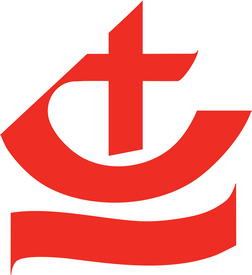Fall Session of PNCC-RCC Dialogue Occurs
Dialogue: Polish National Catholic-Roman Catholic
Date published: Nov. 20, 1998
Persistent linkLien persistant : ecumenical-dialogue.ca/?r=114
This permanent link may be used for this document.
Ce lien permanent peut être utilisé pour ce document.
SCRANTON, PA (November 20, 1998) — The fall session of the dialogue between the Polish National Catholic Church (PNCC) and the Roman Catholic Church took place here on November 4 and 5, 1998, under the co-chairmanship of Most Rev. James C. Timlin, Roman Catholic Bishop of Scranton, and the Right Rev. Anthony Rysz, Bishop of the PNCC Central Diocese. The session was also attended by His Grace John F. Swantek, Prime Bishop of the PNCC. The Roman Catholic Diocese of Scranton hosted the meeting.
The session began with a detailed report from Bishop Thaddeus Peplowski on the PNCC General Synod that took place in Chicago in October. The members of the dialogue were pleased to note that the General Synod reaffirmed the PNCC’s commitment to the ecumenical movement and the dialogue with the Roman Catholic Church.
Painful memories of our separation are still within the living memory of members of both our communions. Thus there is a need for greater efforts to disseminate information about the dialogue. A decision was made to draft a report on the fruits of the dialogue during the ten years that have passed since the publication of Journeying Together in Christ.
In order to foster better relations between our communities, and to symbolize the great progress made in our dialogue, it was suggested that joint services be held at the local level on special occasions between PNCC and Roman Catholic parishes.
The Very Rev. Stanley Skrzypek reported on the relationship between the PNCC and the Union of Utrecht. The PNCC terminated communion with the Old Catholic Church of Austria after it proceeded to the ordination of two women to the priesthood, as it did last year with the Old Catholic Church in Germany.
A paper delivered by the Very Rev. Marcell Pytlarz at the last meeting, entitled “Unity with Autonomy and Identity,” was discussed in greater detail. The paper spelled out the goal of the dialogue from a PNCC perspective. Consistent with what was stated in the Declaration of Utrecht in 1889, the PNCC acknowledges the primacy of the Bishop of Rome in the way this was recognized on the grounds of Scripture, by the Fathers and the councils of the undivided Church, and seeks full communion with the Catholic Church. The PNCC views such a communion as entailing the preservation of its equality, autonomous church structures, self-governance, hierarchical structures and particular traditions. There are still many questions regarding the precise way in which the Bishop of Rome would relate to the PNCC in the event of a full reconciliation.
This led to a deeper discussion of the meaning of full communion, which would include mutual recognition of the fullness of apostolic faith, sacraments, and church governance in each other’s churches. Yet it was noted that such full communion does not imply uniformity. In the words of the 1993 Ecumenical Directory of the Roman Catholic Church, “this unity by no means requires the sacrifice of the rich diversity of spirituality, discipline, liturgical rites and elaborations of revealed truth that has grown up among Christians in the measure that this diversity remains faithful to the apostolic Tradition” (n. 20).
The next meeting of the dialogue is scheduled to take place on April 14 and 15, 1999. It will be hosted by the PNCC and is to take place in the PNCC National Church Center in Scranton, Pennsylvania.







